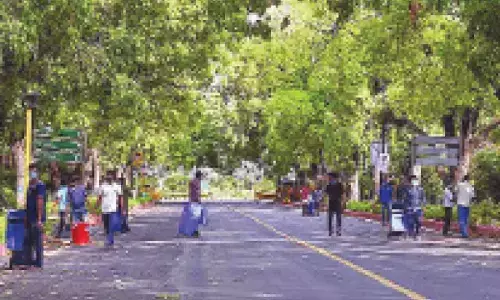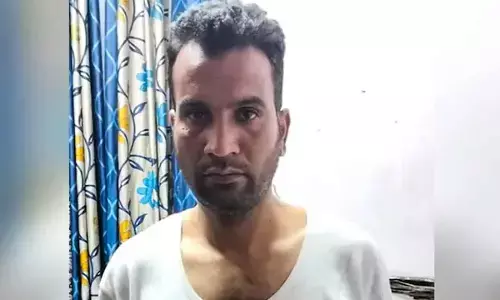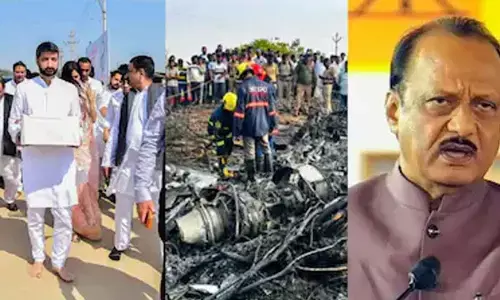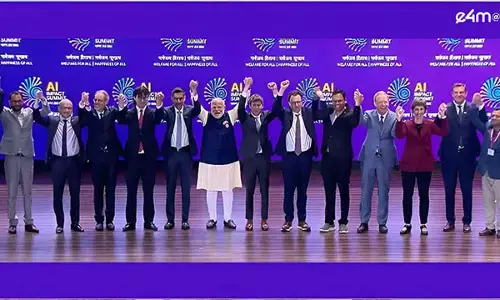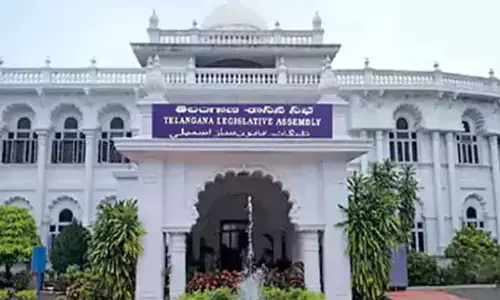Erstwhile royals from Rajasthan continue making a mark on India's political map
Share :
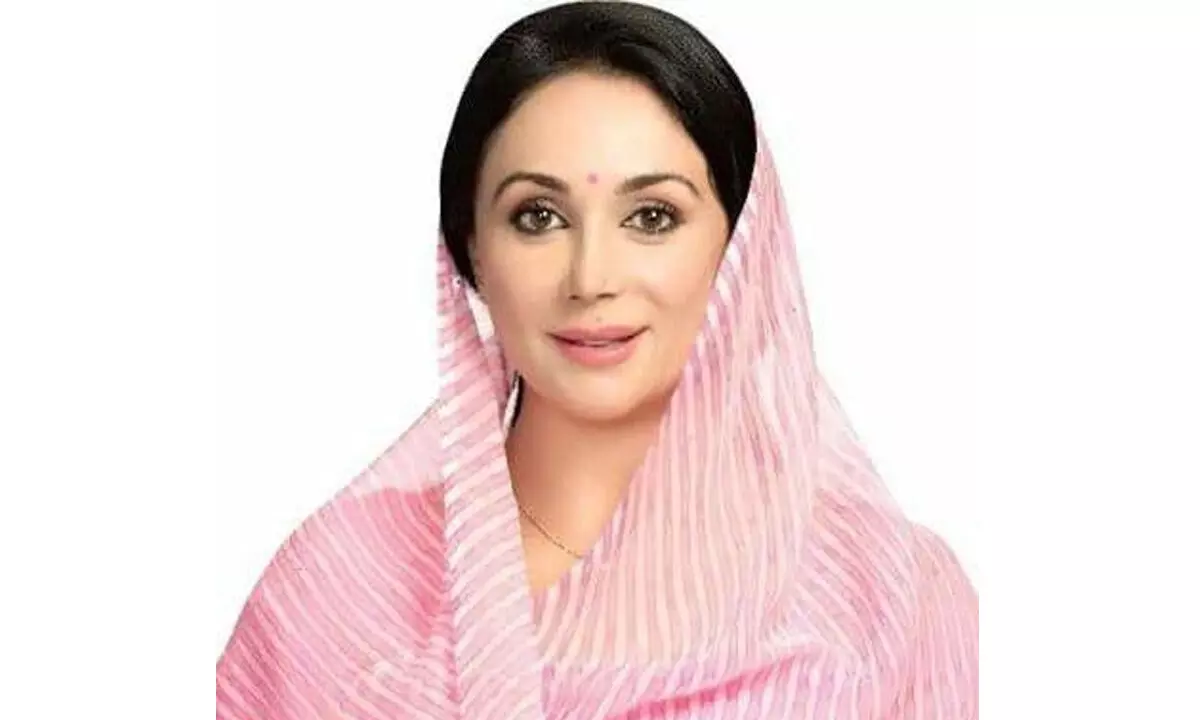
Numerous members of erstwhile royal families have embraced politics ever since India achieved independence.
Jaipur: Numerous members of erstwhile royal families have embraced politics ever since India achieved independence.
After being forced to relinquish their thrones, the princes were clueless about how to stay in public domain, and hence, a few of them got attached to the country's new political system.
In fact, even in the forthcoming polls, many erstwhile members of the royal families from Rajasthan are in the fray.
Among these are Diya Kumari, Rajsamand MP who has now been fielded from Vidhyanagar Assembly in Jaipur.
Diya Kumari is a sitting member of the Lok Sabha from Rajsamand who first won the 2013 Assembly election from Sawai Madhopur and was part of the Opposition when the Congress was ruling the state.
She is one of the seven MPs to have been fielded by the BJP this time. Her father, the late Brig Bhawani Singh, a decorated hero of the 1971 war, contested the Lok Sabha polls from Jaipur in 1987 on a Congress ticket but lost to Girdhari Lal Bhargav of the BJP.
"Being a disciplined soldier of the BJP, I am contesting Assembly election on the party's directions. The orders of the BJP are supreme for me and the development of Vidyadhar Nagar, which is a new township in Jaipur, will be my first priority."
Mahendra Singh, the eldest son of Bhagwat Singh, who in fact is son of the former ruler of Udaipur, won the Lok Sabha elections from Chittorgarh in 1989, though he lost when he contested for the second time.
This time, his son Vishvaraj Singh is contesting from the holy city of Nathdwara against veteran congress leader and Assembly speaker Dr C.P. Joshi, who was a Cabinet minister in the Manmohan Singh government.
As per Vishvaraj, "I have blessings of my people and my father, who is the head of the erstwhile Mewar royals. I have joined politics after much thought. If elected, I shall work for the development of the holy city of Nathdwara, which has been attracting lakhs of pilgrims," he adds.
Another scion of Bharatpur royal family, Vishvendra Singh has been in Janata Dal and BJP as a Lok Sabha MP, who switched to the Congress after Bharatpur became a reserved Lok Sabha constituency.
Currently, the state's tourism minister, his political lineage also includes his uncles raja Man Singh and his younger brother Raja Bachhu Singh, MLA and MP respectively.
Man Singh, a seven-time independent MLA from Deeg from 1952-84, died in 1985 in police firing along with two of his supporters when he attempted to damage the helicopter of chief minister Shiv Charan Mathur.
This incident led to the resignation of Mathur in the midst of Assembly elections, and Heera Lal Deopura was made chief minister. The case was investigated by the CBI, and 11 persons were convicted.
Man Singh's daughter Krishnendra Kaur Deepa, 66, was later elected from Nadbai, and she is again contesting as a BJP nominee from the same constituency. She was also a minister in Vasundhara Raje's cabinet from 2013-18.
Siddhi Kumari, scion of the Bikaner royal family and granddaughter of late Dr. Karni Singh, is a three-time MLA from Bikaner who was first elected from Bikaner East in 2003 and is contesting again from her old domain as a BJP candidate.
Another member of the Royal family, Kalpana Devi, a scion of the Kota royal family, was elected from Ladpura in Kota district in 2018, and she has now been fielded once again by the BJP.
Her husband Ijyaraj Singh is a former member of the Lok Sabha who won on a Congress ticket from Kota.
Incidentally, Kalpana Devi's father Brijraj Singh, a former ruler of Kota, was thrice a member of the Lok Sabha from Jhalawar as a nominee of Jan Singh.
Jhalawar is one seat that was earlier represented by former CM Vasundhara Raje and now being helmed by her son Dushyant Singh.
Raje, who served as a BJP chief minister for two terms, is once again in the fray from Jhalawar, though she is now reportedly sidelined by the party, even if she has managed nominations for some 40 of her loyalists.
While the present royals speak the story of embracing politics, the history of their families joining different parties is also quite interesting.
They have formed and floated parties like Ram Rajya Parishad and Swatantra Party after independence.
As they were forced to relinquish their thrones post Independence, many ex-royals joined the Indian Union under an official order of the Union government, headed by Prime Minister Jawaharlal Nehru.
The merger of these principalities into the Union was meant for the integration of an independent India that was preparing to frame its own Constitution.
At the time of Independence, Rajasthan had 22 small and large princely states, including Jaipur, Jodhpur, Bikaner, Udaipur, Kota, Alwar, Bharatpur, Karauli, Jaisalmer, Dungarpur, Banswara, Sikar, and Khetri.
Rajasthan was created by merging these 22 states following the formation of an interim government with Heera Lal Shastri as the first chief minister.
Later, Indian Civil Service officer V.T. Krishnamachari, once the prime minister of Jaipur, was made chief minister, and he was succeeded by Jai Narayan Vyas.
When the country's first general elections were held in 1952, some former princes remained in the political system and formed a party called Ram Rajya Parishad, the brainchild of the maharaja of Jodhpur, Hanwant Singh.
While Hanwant himself contested the first Lok Sabha elections, he also fielded several aristocrats (thakurs) from among his erstwhile subjects and important landlords.
However, Jaipur, Udaipur, and several other former states did not join his party.
Dr Karni Singh of Bikaner, for example, contested as an independent and won. And though Ram Rajya Parishad was a party of Rajputs, Rajput politician Bhairon Singh Shekhawat opted out of the party and contested as a nominee of the Bharatiya Jan Sangh, which later became the BJP.
Ram Rajya Parishad won 24 seats, and chief minister Jai Narayan Vyas lost to a Ram Rajya Parishad candidate, though he became a member of the first Vidhan Sabha after winning the by-election from Kishangarh.
He later became CM when Tika Ram Paliwal made way for him.
Ram Rajya Parishad had faded by the second elections in 1957, and a large number of its members either lost to Congress candidates or did not contest.
Later, a significant number of them joined and contested as Congress candidates. However, Maharani Gayatri Devi of Jaipur formed the Swatantra Party, drawing a large number of erstwhile Rajput princes and nobles.
For 10 years, the Swatantra Party was a force to reckon with and posed a significant challenge to the ruling Congress.
While Swatantra party and Ram Rajya Parishad have lost their sheen, the ex-royals continue to make a mark on the political map in the two-party state which is being led by either Congress and BJP in every alternate term.

